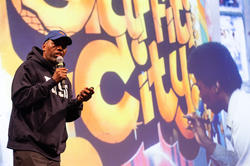The founding creative director of Def Jam Recordings visited RISD as part of DESIGN WEEK RI.
RISD Hosts DESIGN WEEK RI Panel on Commemoration and Historical Preservation
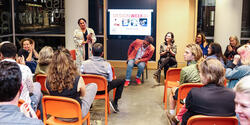
Which people and moments from the past do we choose to commemorate? How can monuments serve as vehicles for truth-telling and protecting diverse legacies?
A panel of local artists and scholars who use research as a tool for preserving history came together at RISD to share ideas and spark conversation about the role of artists and designers in building community and honoring diverse histories. Part of DESIGN WEEK RI, a statewide initiative of which RISD is a founding partner, the panel was organized by RISD’s Center for Community Partnerships and moderated by Provost Touba Ghadessi and Assistant Provost for Academic Engagement Margot Nishimura.
Artist and RISD Global Arts and Cultures alum Shey Rivera Ríos MA 24 GAC and Providence’s Director of Arts, Culture, and Tourism Joe Wilson, Jr. are two of the forces behind the recently created Providence Commemoration Lab, which (among other things) stages temporary installations and projects on public property that activate unexpected ways of understanding commemoration as a communal process of historical redress and spatial reclamation. They began the discussion by reflecting on their experiences reclaiming local sites, including what was Columbus Square in Providence’s Elmwood neighborhood, a hotbed of conflict since 2020, when park commissioners removed a Christopher Columbus statue that had stood there for more than a century.
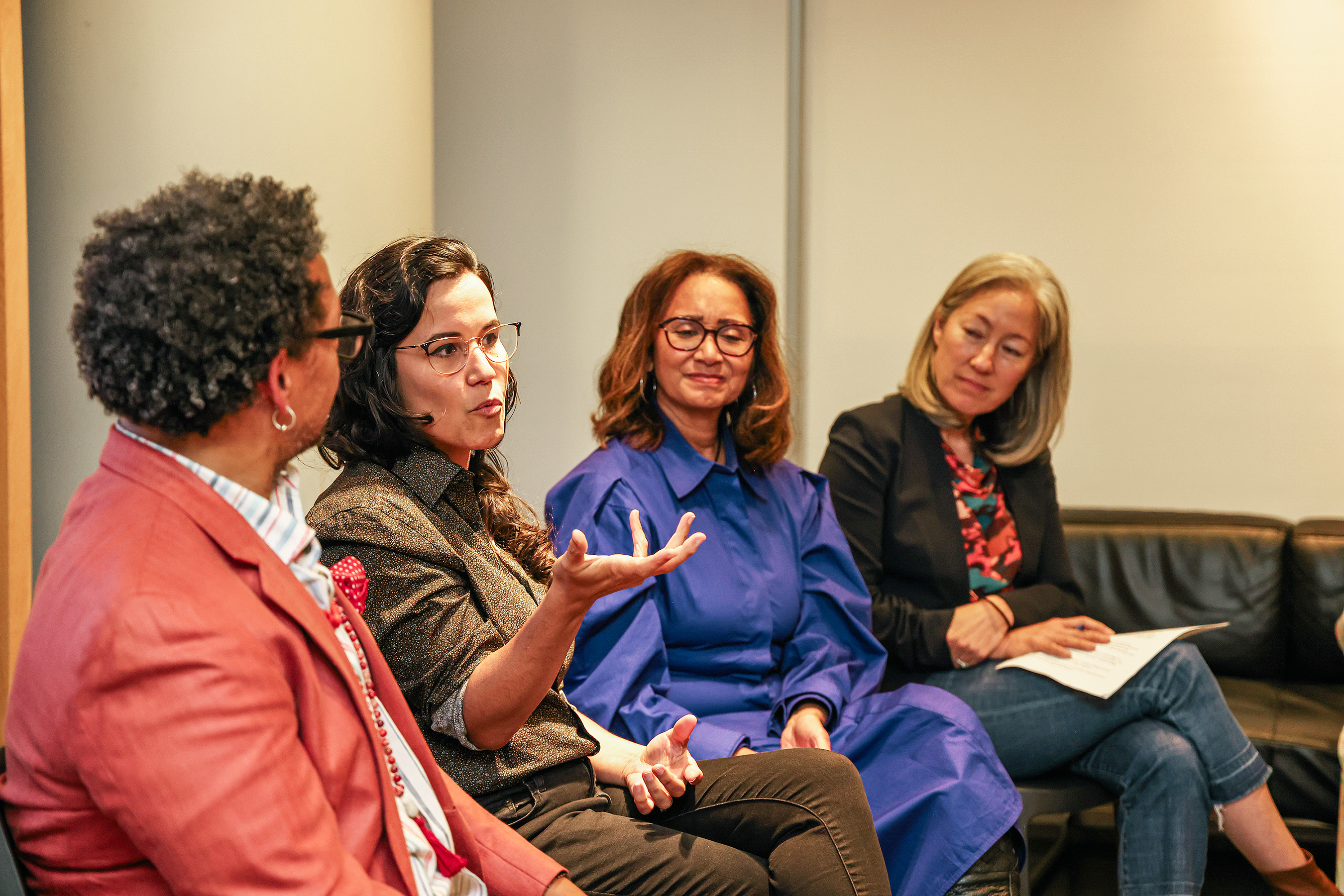
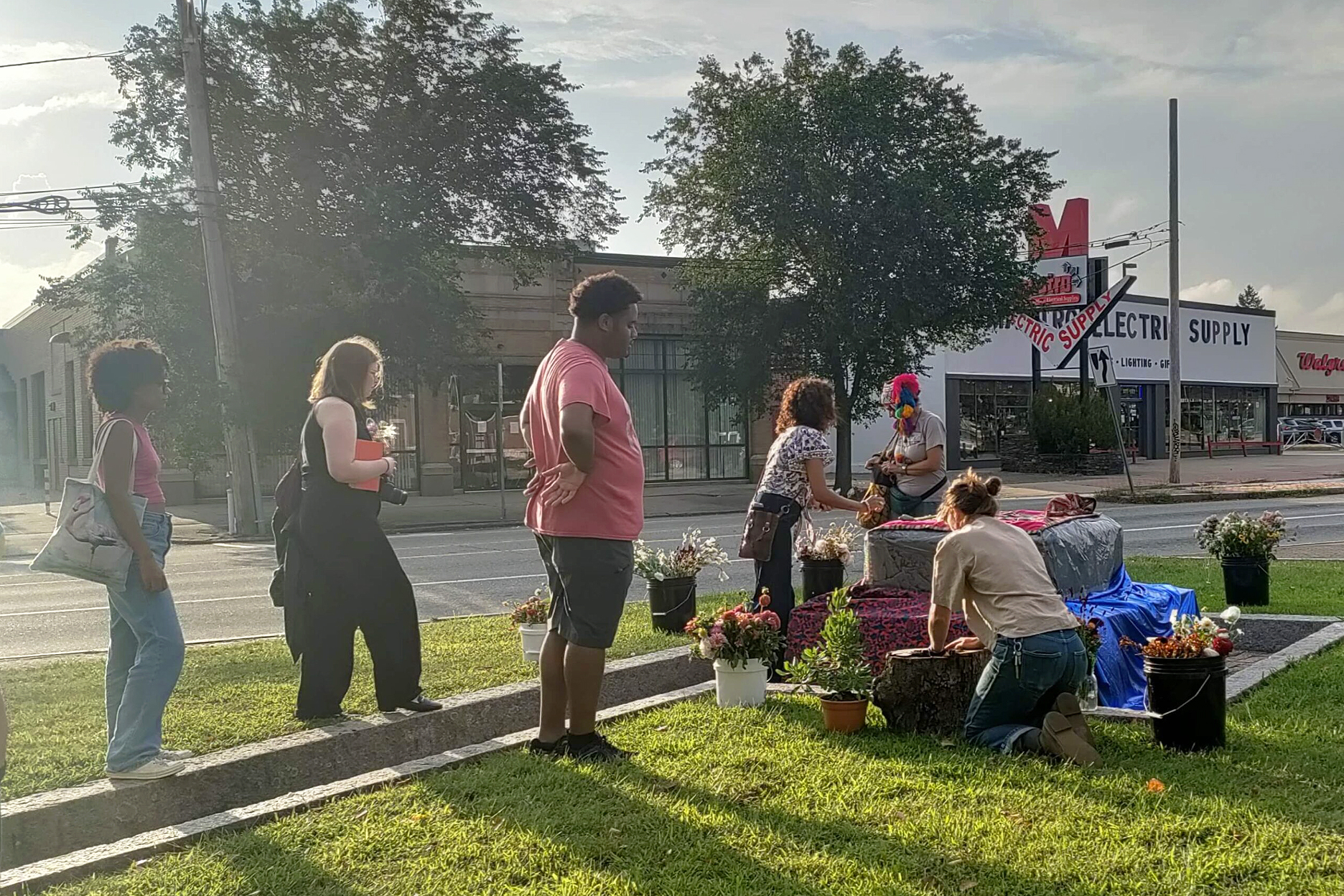
“I have a sacred obligation to use my artistry to lift up the community,” Wilson said. He went on to explain that the lab dates back to the onset of COVID, when communities across the country and around the world were protesting the murder of George Floyd. The artists involved are “excavating stories” at three sites across the city: Columbus Square, Roger Williams Park, and Public Street, all of them “deeply embedded in the voices of the community.”
Rivera describes themself as a social practice artist who originally came to Providence in 2010 to collaborate with local nonprofit AS220. “Historic legacies, public humanities, and research come together in my practice,” they explained. They worked with community members in Elmwood to develop AncesTree, a temporary installation in the square celebrating “the stories of the land and the people who live there.”
“The core purpose of the project is bringing people together and honoring their stories,” Rivera added. “When we slow down, we connect with our humanity and hear the stories others are carrying inside them.”
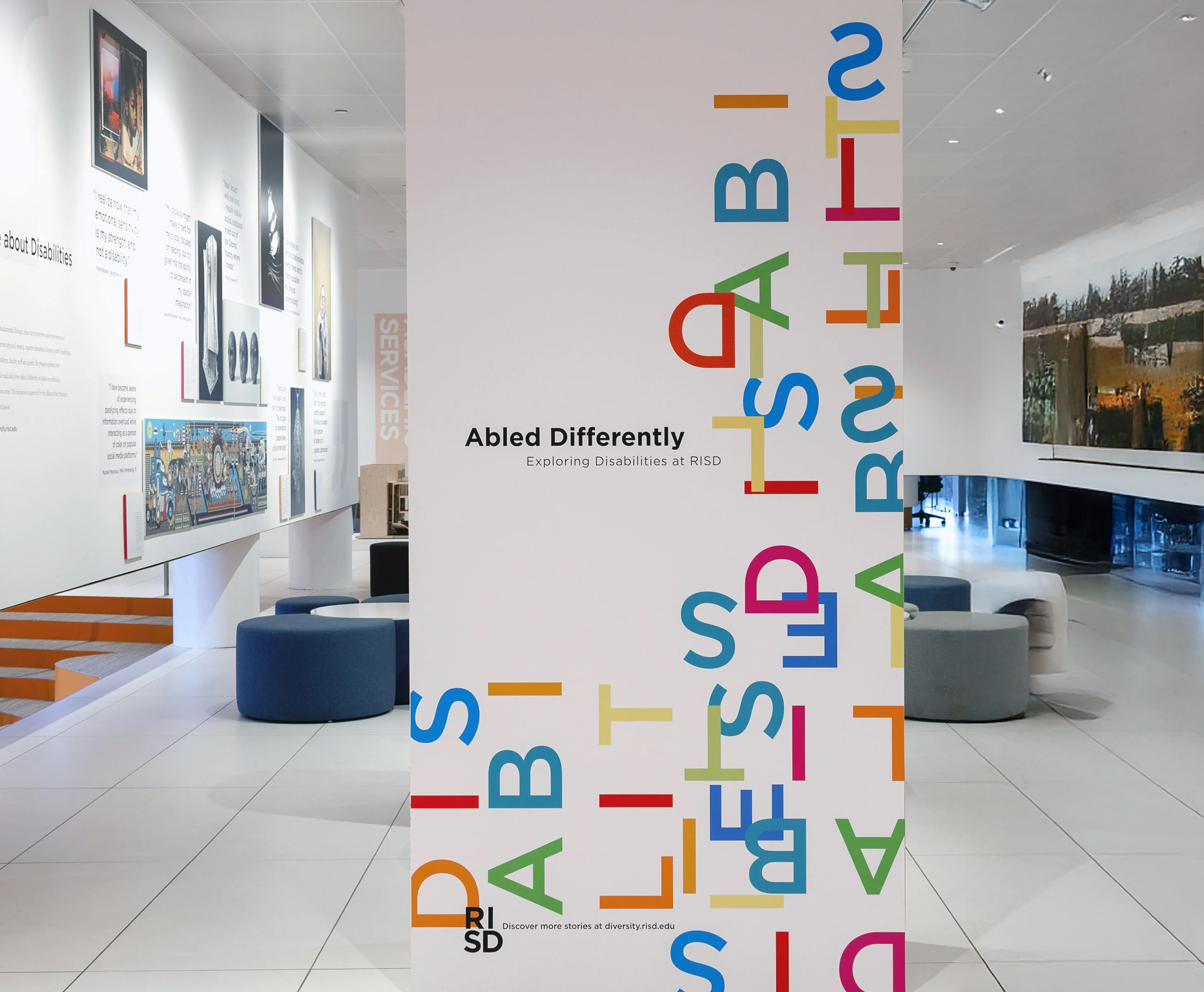
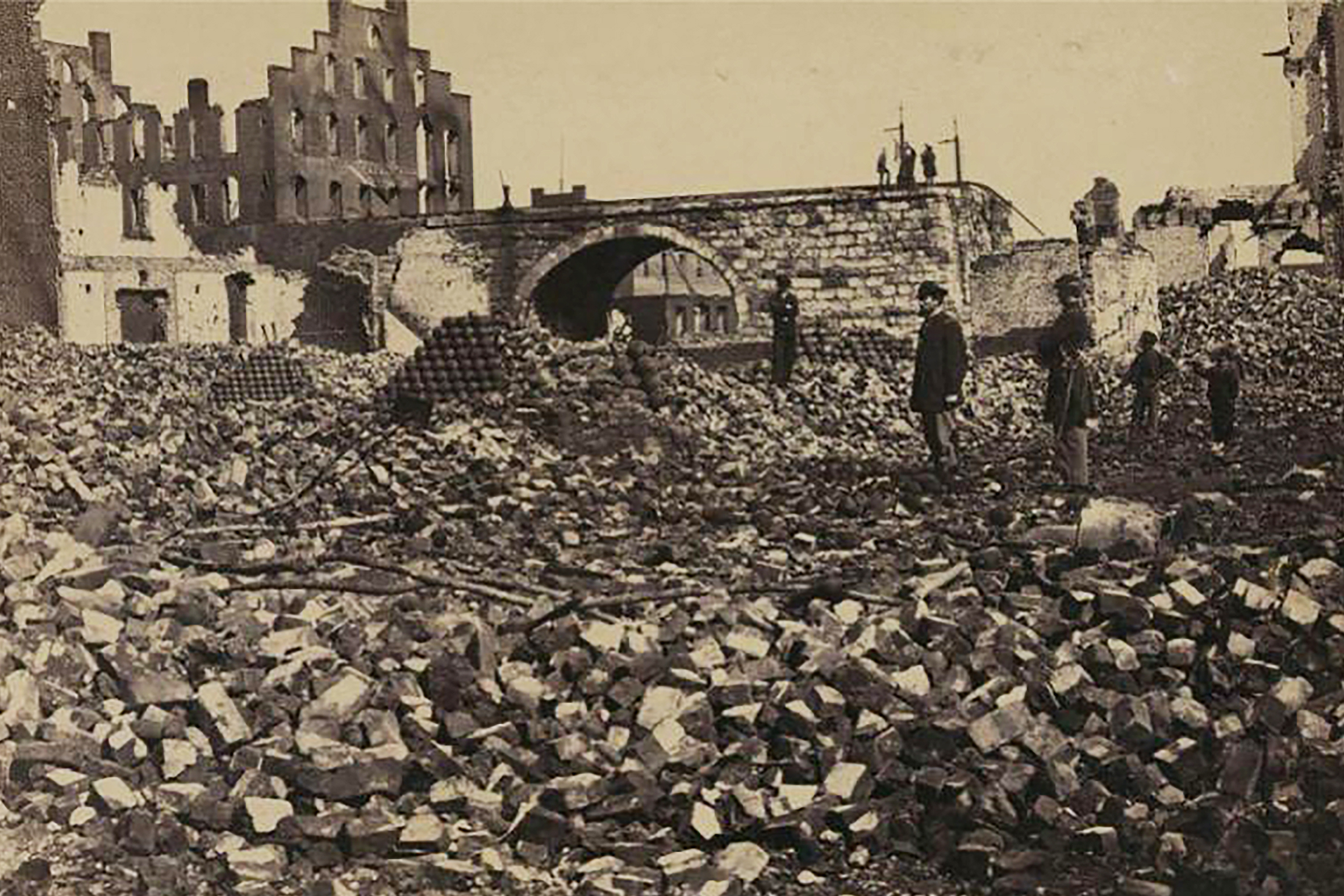
RISD faculty member and alum Rene Payne 83 GD also spoke about the importance of human connection and honoring the oftentimes invisible qualities that make each of us who we are. She reflected on Abled Differently, a 2019 exhibition she co-curated in RISD’s 20 Washington Place building that created meaningful dialogue by inviting contributing artists to share and honor their mental, physical, and emotional challenges.
Payne is currently heading up two projects meant to prevent government leaders from erasing the histories of Black Americans. The Emmett Till Memory Project honors the legacy of the 14-year-old who was abducted and lynched in Mississippi in 1955 for allegedly whistling at a white woman. Payne created a “bulletproof” interactive website impervious to vandalism, unlike the sign marking the site of his murder, which has been moved to the Smithsonian’s National Museum of American History. Black Press @200 honors the legacy of Black journalists who helped to shape American society through their work.
“When we slow down, we connect with our humanity and hear the stories others are carrying inside them.”
Former RISD faculty member Marisa Angell Brown, executive director of the Providence Preservation Society, also relies on research in her work and says that “architectural preservation and monument making are parallel practices.” The same subjective decision making that has historically guided the creation of monuments is behind the selection of “significant” sites to be preserved. Brown’s work as an architectural historian sheds lights on land ownership and the forces that underlie preservation.
The event closed with a Q&A session in which Rivera encouraged participants to “allow space for generative conflict. It’s hard to let go of old stories,” they noted, “but relationships transform our perceptions of other cultures.”
Simone Solondz / panel photos by Rue Sakayama 06 FAV
September 29, 2025
